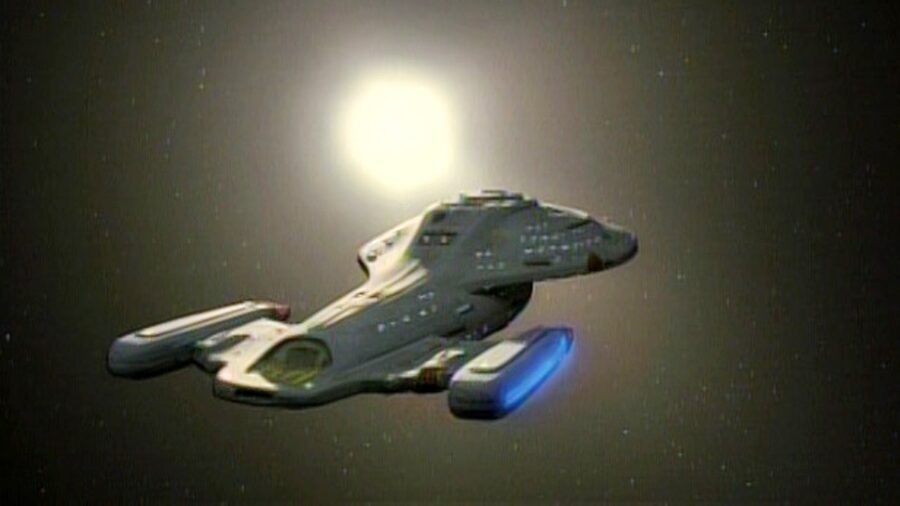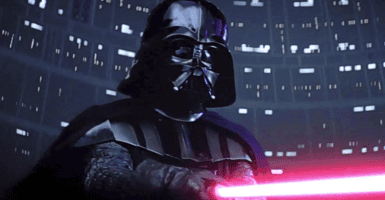The Literary Classic Star Trek’s Producers Had Never Heard Of

Star Trek is normally considered one of the most literary franchises…after all, not one but two of the best movies feature characters heavily quote Herman Melville’s Moby Dick. However, one of the franchise’s most prolific writers was shocked to discover that Voyager’s producers were completely unaware of one of the most influential stories ever written. When Naren Shankar wrote “Heroes and Demons,” he based it heavily on Beowulf, a tale he realized the producers hadn’t read when he initially pitched the article.
Beowulf

Speaking of tales, the story of how this Star Trek episode came about is pretty weird: it all began when Shankar had dinner with prolific franchise writer and producer Brannon Braga. Voyager was still being developed, but that didn’t keep these two from brainstorming episode ideas, and they eventually settled on the idea of the holographic Doctor going on a Viking-themed holodeck adventure to save some lost crew members. Soon, Shankar made the connection nobody else appreciated when he formally pitched the episode: “We go into this Viking village, people are disappearing, and everybody’s scared–this is Beowulf!’
Braga obviously loved Shankar’s idea, but the writer still had to win over the other Star Trek producers. On that front, he faced some good news and some bad news. The good news was that “everybody loved the premise.” The bad news, at least in his mind, was that nobody else in the room had read Beowulf, a story that Shankar (and us, too) thought was standard reading material.
The Episode Is Filled With References

For this returning Star Trek writer (Shankar was a full-time writer for The Next Generation and Deep Space Nine before freelancing for Voyager, this led to a frustrating scenario where he filled the script with homages to Beowulf that the producers couldn’t really appreciate. He said that “in my first draft, during the first few Viking scenes, there were lines from Beowulf that I worked into the characters’ speeches.” With perhaps a bit of shade, Shankar added, “Somebody who knew the poem would have said, ‘Gee, that’s in the poem.'”
Subverting The Classic Poem

An example of the Star Trek writer’s literary homages in this episode is that the Doctor loses his arm to Grendel, which was meant to be a humorous reversal of what a very literate audience would be expecting. “It’s never mentioned in the script,” he said, “but anybody who knows the poem knows that Beowulf took Grendel’s arm, so they should find that quite amusing.” He had very high hopes for the audience, noting that “they’ll appreciate the irony, because it’s so obviously intentional.”
A Favorite Of Robert Picardo

Sadly, there’s no way to gauge how much (or how little) the audience appreciated the irony of this Star Trek script, but it ended up being a hit even with fans who were unfamiliar with Beowulf. Producer Jeri Taylor later said that “People adored this episode,” and producer Michael Piller said the story was “just wonderful.” It was also a major hit with holographic Doctor actor Robert Picardo, who later praised how genuinely funny the episode is and declared that, in real life, this is the kind of holodeck program he’d like to experience.
One Of The Best Of Voyager’s Run

Star Trek remains a franchise with constant literary allusions, so it’s admittedly a little weird to imagine a room full of producers who had never heard of Beowulf. That lack of awareness, fortunately, didn’t keep Naren Shankar from writing one of Voyager’s most memorable early episodes, one that manages to be filled with plenty of daring adventures as well as great humor, including lines you’ll be quoting long after the episode is over. Throw in the amazing performance from Picardo, and you will have an episode that’s worth returning to time and time again.












